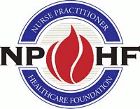- Home »
- About NPs
Who are Nurse Practitioners?
A Nurse Practitioner (NP) is a nurse with a graduate degree in advanced practice nursing. This allows the NP to provide a broad range of health care services, including:
• Taking the patient's history
• performing a physical exam
• ordering appropriate laboratory tests and procedures
• diagnosing
• treating
• managing acute and chronic diseases
• providing prescriptions
• providing patient/family education and counseling
• coordinating referrals
• promoting healthy activities in collaboration with the patient
Nurse Practitioner specialties include:
• family practice
• women's health
• pediatrics
• geriatrics
• adult health
• neonatology
• psych/mental health
• acute care
(Source: Adapted from U.S. National Library of Medicine and the National Institutes of Health)
How many NPs are there?
205,000
(Source: AANP, 2015)
How many NPs graduate each year? From what types of programs?
Approximately 10,500
(Source: National Organization of Nurse Practitioner Faculties, 2011)
NP education is at the graduate level. NPs complete either a master's degree program or a doctoral degree. Doctoral programs are either the Doctor of Nursing Practice (DNP) or the Doctor of Philosophy in Nursing (PhD). The DNP represents the terminal clinical degree; the PhD is a research degree.
In what settings do Nurse Practitioners practice?
• Private practices
• Community clinics
• Hospitals: In-patient settings and emergency rooms
• School-based clinics/college health centers
• Correctional facilities
• Nursing homes/long-term care facilities/hospices
• Health maintenance organizations
• Armed Forces and Veterans’ Administration facilities
• Urgent care settings
• Retail clinics
Anywhere that quality care is offered!
Further Information
Click for more information about NPs Scope/Prescriptive Authority Maps in the United States.
Click for Bibliography and NP practice.
